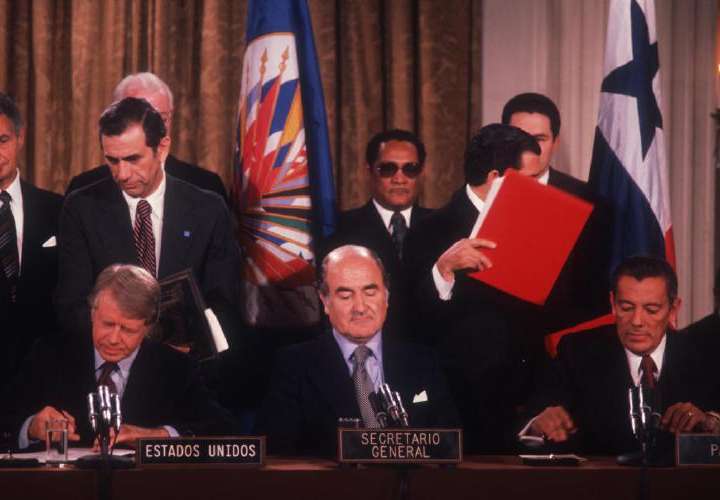In this blog, I'll share my adventures as an expat in Panama and explore the fascinating story behind the treaties that changed the course of Panamanian history.
The Call of Panama: My Expat Journey Begins
My story as an American expat in Panama began with a sense of adventure, a thirst for new experiences, and the allure of a country that bridges two continents. Panama, with its diverse landscapes, rich culture, and the promise of a simpler life, beckoned me to explore its hidden treasures. It's a place where the old and the new coexist in perfect harmony, where tradition meets modernity, and where the warm smiles of the locals make you feel like you've found a second home.
The Birth of Panama: A Tale of Two Oceans
Before diving into the Torrijos-Carter Treaties, it's essential to understand Panama's unique history. This small but mighty country is the geographical and cultural bridge between North and South America. But what truly makes Panama stand out is its role as the link between two vast bodies of water: the Caribbean Sea and the Pacific Ocean. This strategic position has made Panama a coveted territory throughout history.
The French Connection: The Panama Canal's False Start
In the late 19th century, the French initiated a grand endeavor to build the Panama Canal. Spearheaded by the visionary Ferdinand de Lesseps, the project encountered numerous challenges, including tropical diseases, engineering difficulties, and financial setbacks. The French attempt ultimately ended in failure.
A Vision Realized: The U.S. Steps In
The failure of the French canal project didn't deter others from recognizing the significance of a canal through Panama. The United States saw the potential and entered the picture. Their efforts, under the leadership of George W. Goethals and John F. Stevens, were met with remarkable success. The Panama Canal, often referred to as one of the greatest engineering achievements of the 20th century, was officially opened in 1914.
A Dual Role: U.S. Control and Sovereignty
The construction of the Panama Canal came with a significant concession. Under the Hay-Bunau-Varilla Treaty of 1903, the United States secured control of a 10-mile-wide Canal Zone. This zone was essentially U.S. territory, with American sovereignty over the canal, its operation, and the surrounding area.
The Push for Change: The Torrijos-Carter Treaties
As the years went by, the control of the Panama Canal by a foreign power became a point of contention. Panamanians, led by General Omar Torrijos, advocated for the return of the canal and the Canal Zone to Panama. The United States, under the leadership of President Jimmy Carter, recognized the need for change and negotiated a series of treaties with Panama.
Torrijos-Carter Treaties: The Key Provisions
The Torrijos-Carter Treaties, signed on September 7, 1977, brought about significant changes to the status of the Panama Canal and the relationship between the United States and Panama. The key provisions of these treaties included:
1. The Return of the Canal Zone: The United States agreed to relinquish control of the Canal Zone, paving the way for Panama's full sovereignty over the canal.
2. Neutrality and Permanent Operation: The United States retained the right to intervene militarily to ensure the canal's neutrality and permanent operation.
3. A New Treaty on Canal Operations: The treaties established a new treaty, the Panama Canal Treaty, to outline the operation and defense of the canal.
4. Transition Period: A transition period was set in motion, allowing the gradual transfer of control from the United States to Panama.
The Transition: From American to Panamanian Control
The process of transitioning control of the canal was marked by ceremonies, celebrations, and a deep sense of national pride. On December 31, 1999, the Panama Canal was officially handed over to Panama, marking a significant moment in the country's history.
A Testament to Diplomacy: The Torrijos-Carter Treaties' Legacy
The Torrijos-Carter Treaties are a testament to the power of diplomacy, negotiation, and cooperation. They served as a model for resolving international disputes peacefully and setting a precedent for the transfer of territorial control. The treaties are celebrated in Panama as a symbol of the country's sovereignty and determination.
Life as an Expat in a Post-Treaty Panama
As an American expat living in Panama after the Torrijos-Carter Treaties, I've witnessed the country's transformation. The return of the canal and the Canal Zone has allowed Panama to reclaim a significant part of its territory and exercise full sovereignty over the waterway. This change has had a profound impact on Panama's national identity and the opportunities available to the people.
Economic Growth and Opportunity
The Panama Canal's continued operation and expansion, alongside the return of the Canal Zone, have stimulated economic growth. Panama's strategic location and the income generated from the canal have boosted the country's economy. As an expat, I've observed a thriving job market, increased investment, and a growing sense of prosperity in Panama.
International Recognition
The successful negotiation and implementation of the Torrijos-Carter Treaties have earned Panama international recognition as a nation that values diplomacy and peaceful resolutions. The treaties serve as a case study for resolving disputes and conflicts without resorting to force.
Tourism and Cultural Exchange
Panama's enhanced national identity and its growing popularity as a tourist destination have allowed expats like me to enjoy a rich cultural exchange. Panama's vibrant culture, history, and traditions have become more accessible to international visitors, making the expat experience all the more enriching.
A Remarkable Journey in Panama
As an American expat living in Panama, I've had the privilege of witnessing the profound impact of the Torrijos-Carter Treaties on this nation's history and future. These treaties are a testament to the power of diplomacy and the importance of peaceful resolutions in our ever-changing world.
Panama's transition to full sovereignty over the Panama Canal and the former Canal Zone has created new opportunities, stimulated economic growth, and allowed the country to shine on the world stage. It's a story of triumph, collaboration, and the determination of a nation to chart its own course.
My journey as an expat in Panama has been a remarkable one, and I'm grateful to be part of a community that embraces the future with open arms, celebrating its heritage while looking ahead to new adventures. Panama, with its rich history and bright future, is a place where the past and present harmonize beautifully, making it a true gem of Central America.
Cheers!



 RSS Feed
RSS Feed